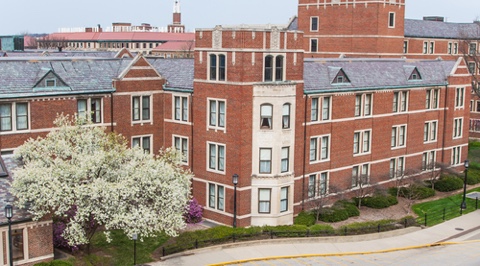
The University of Purdue is partnering with the Indiana Housing and Community Development Agency and industry partners to conduct a four-year research project examining how households consume energy. The project is being funded a $3.6 million award from the National Science Foundation’s Smart & Connected Communities program.
Web-enabled devices will be installed in the test homes to monitor energy consumption due to heating, cooling, lighting, hot water, and appliance use. The devices include smart energy meters, thermostats, and sensors. Once energy consumption is determined, researchers will use large-scale data analytics and predictive modeling to formulate messages delivered to the consumer, either through tablet displays or verbal communication. This feedback is intended to motivate the residents to adopt energy conserving behaviors. It is hoped that the project will create a national model for smart and connected energy-aware residential communities.
“We’re hoping to be able to install smart and connected devices and get data from hundreds of households with a wide range of demographics and types of housing, from apartments to single houses,” principal investigator Panagiota Karava, an associate professor of civil engineering in the Lyles School of Civil Engineering, said.
This interdisciplinary research involves a number of Purdue departments, including the School of Mechanical Engineering, the Department of Political Science, the Brian Lamb School of Communication, the Research Center for Open Digital Innovation, the Department of Computer Graphics Technology, the Department of Computer and Information Technology, and the Krannert School of Management.
“We’re trying to generate this concept of community energy conservation,” Karava said. “The idea behind that is this information could be used, for example, to create community incentives, monetary or otherwise as well as energy policy programs.”


